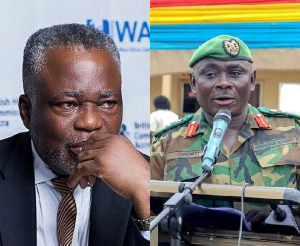It did not hit me until the Barack Obama Inauguration. All of a sudden everything was alright. Even though United States faced some very daunting challenges, the optimism characterizing the new birth of freedom trumped any concerns for the future or the difficulties that the previous administration had arguably helped to usher in. for Democrats, it was worth the wait considering the two previous elections that brought and kept George W. Bush in the White House.
The feeling I had after the December run-off elections in Ghana was similar to the one most experienced back in December of 2000 when the United States Supreme Court stopped the Florida recount to hand the presidency to George W. Bush. Here also, Republicans and Democrats traded accusations of improprieties by the other party. The version one believed depended on which party one was affiliated with.
Similarly in Ghana, NPP supporters only saw voter improprieties in Volta Region. Nothing that happened in Ashanti Region mattered. The opposite was the case with NDC supporters who saw ills in Ashanti Region, but perfection in Volta Region. The resulting contentious situation had both party followers breathing fire. As NDC supporters threatened mayhem if the Electoral Commission declared the NPP candidate the winner, NPP supporters urged NPP’s Nana Addo Danquah Akufo-Addo to push on with his challenges and never to concede.
Meanwhile majority of Ghanaians knew something we all did not know, and it is important that we learn this lesson from them. The ramifications of civil conflict are far too dire than the disappointment of some over a perceived stolen election. They know all along that the ultimate power to change governments resides on their thumbprint, and four years within the context of the indefinite life span of a country is a short period of time. Furthermore, the benefits of showing restraint, the type that Al Gore showed in 2000 and John Kerry followed in 2004, come in many forms including global acclaim, increased foreign investments, a sustained democratic dispensation that makes it harder and harder for the prospect of dictatorial governance, and much more.
If this is so simple, then why is it that those who claim to be well versed in the concept of democracy find it difficult to accept the verdict of an authority on elections while those who, for the most part, appear to know little so easily understand enough to accept the ruling? The answer is not farfetched; it is a natural and sometimes difficult-to-ignore tendency to place a higher than necessary premium on personal self-interest even if it is done sub-consciously. In addition, a loss is always worse than victory, and as Jimmy Cliff sings it, “who feels it knows it.” That means unaffiliated voters with no direct stake in the outcome of the election could care less if one party wins over the other regardless of how they voted. To them, it is simply not a loss.
By contrast, one would find the most vehement players on both sides are those who have invested one resource or another in support of their party. To this group of people, it is not just one party losing to another; it is their party losing to the other. An example of this personal interest showed up in the bailout debate in the United States. If you owned stocks in AIG, you supported a government bailout; if you did not, and saw no connection between a bailout and the economic situation, you thought the bailout is a silly idea. Thus, since we are all human, and we do not take losing easily, it takes understanding how it feels to lose to understand why those who lose close elections get so passionate. At the same time, the general good is always superior to the rights of a few – or in this case, the minority. The good news is that the passions always die down and sanity prevails.
So as President John Atta Mills takes office in Ghana, and Barack Obama assumes the United States presidency, it is important to put things in context. Ghana will go on and will be just fine. The dire consequence of a President Atta Mills government that some NPP supporters are predicting may not materialize, and it should not. And even if Ghana regresses, so what? Ghanaians know when the going is rough, and they now know what to do. Besides, there is always tomorrow. We can always rebuild. No country experiences a smooth, uninterrupted growth curve, and Ghana should not be expected to. This, in essence, is a call to all NPP supporters to accept the reality of an NDC government and work to support our new president. Remember that a two-party Ghana is better than a one-party Ghana even if that one party is the NPP.
Opinions of Tuesday, 27 January 2009
Columnist: Nkrumah, Jermaine


















